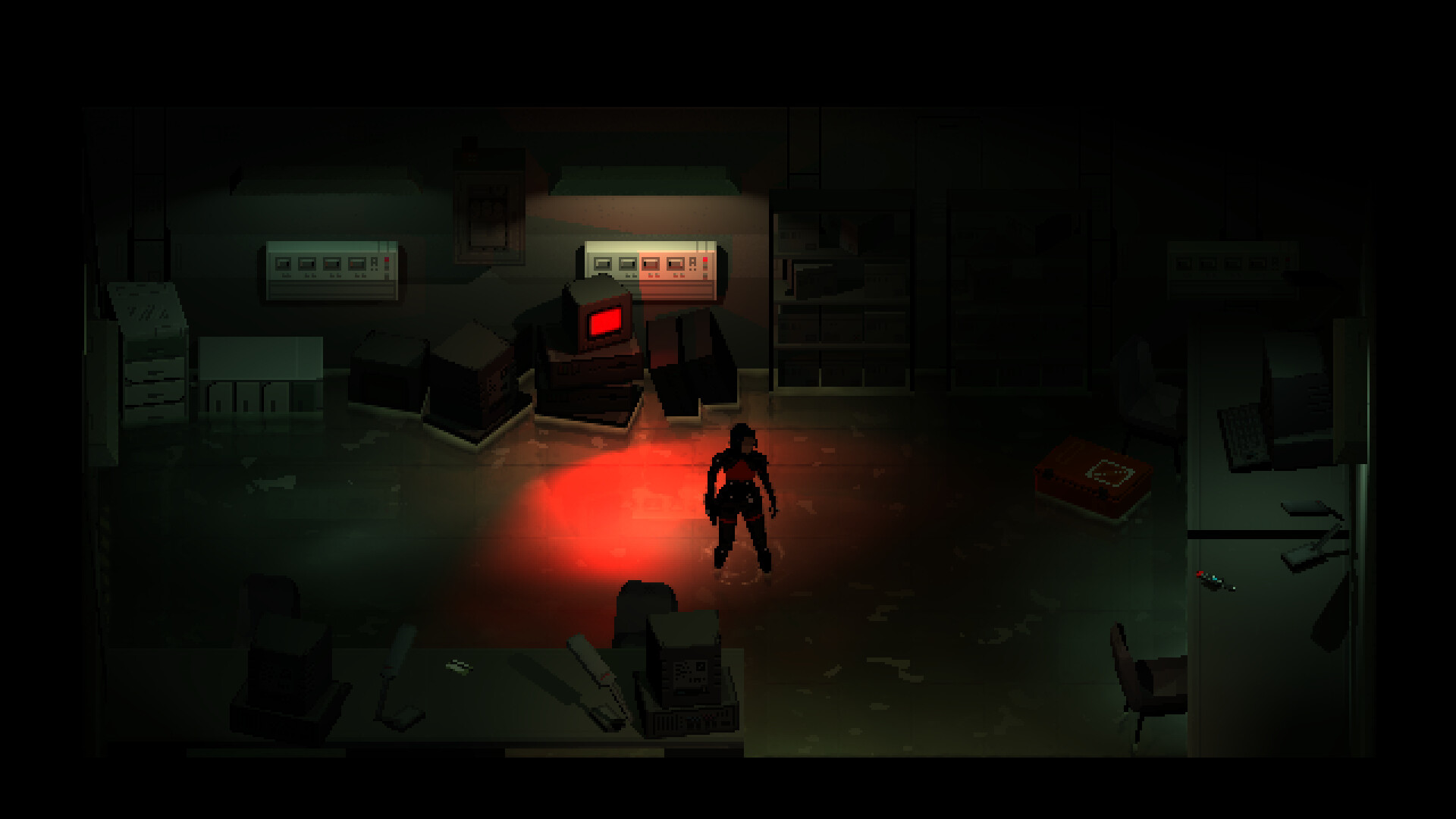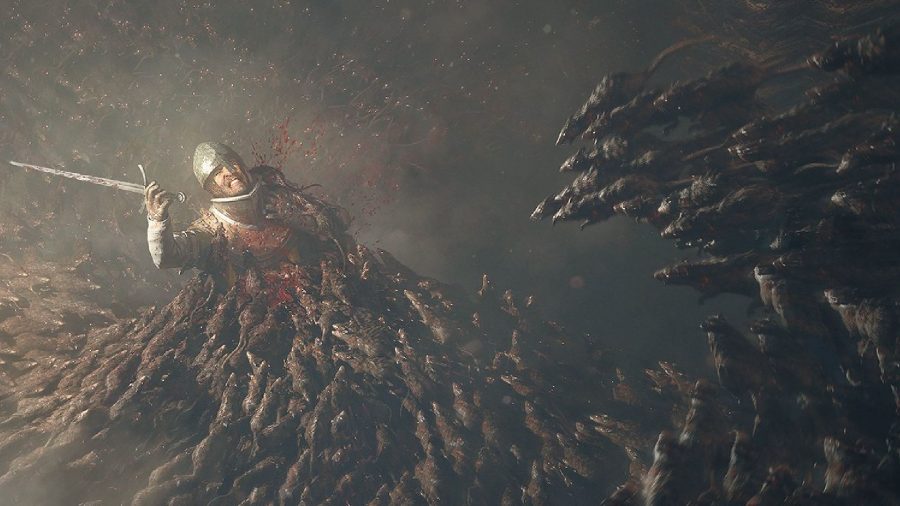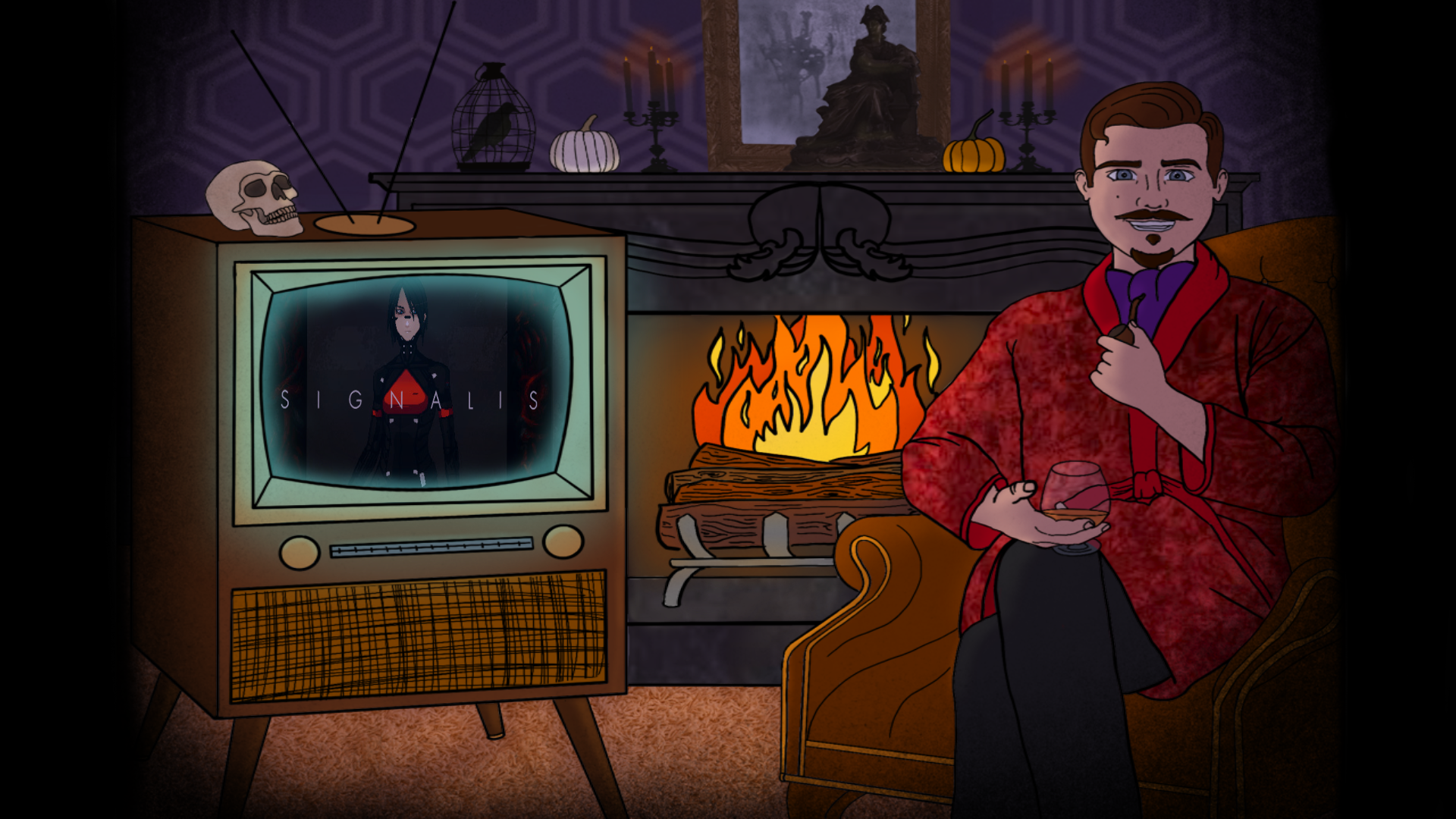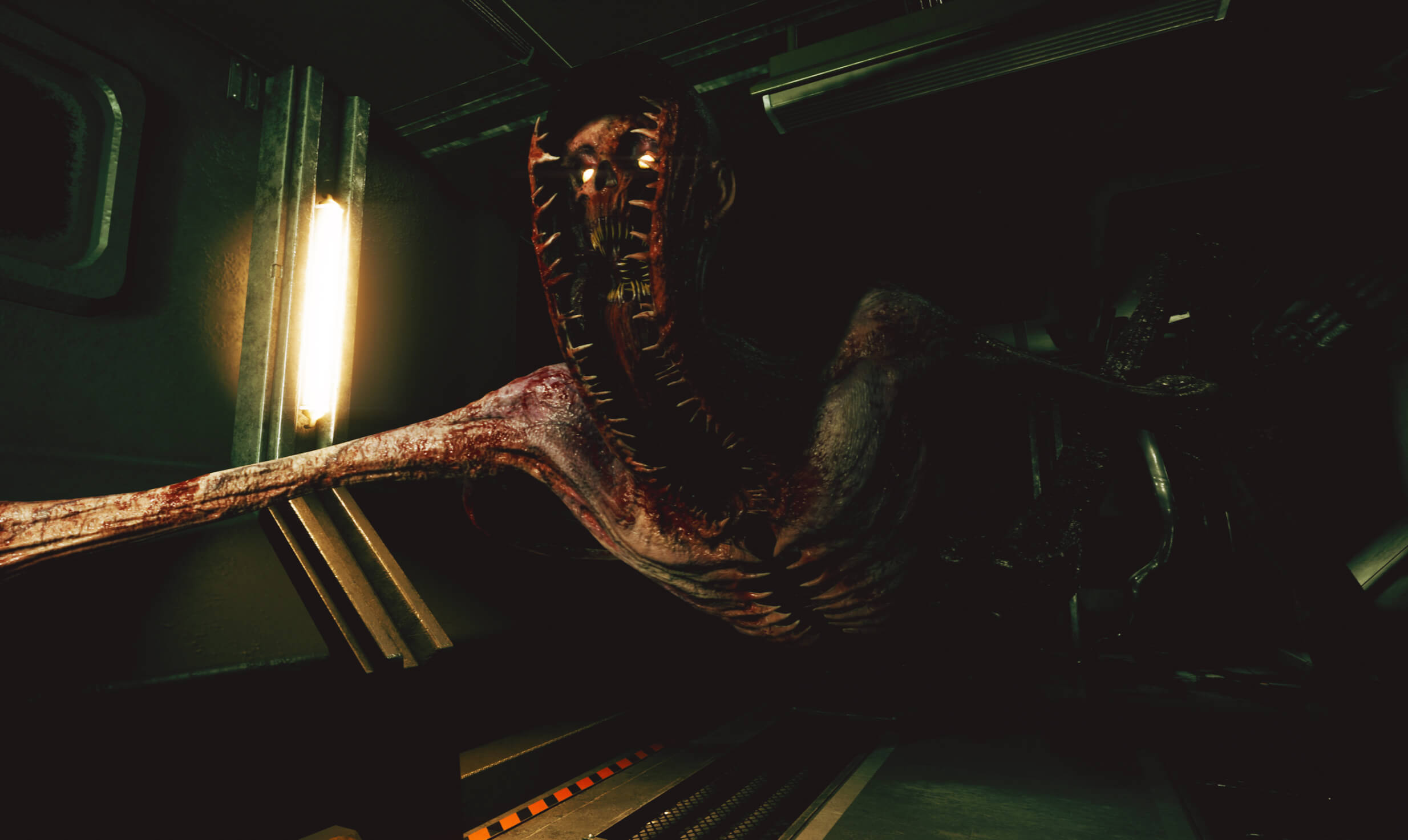
Signalis Sows Terror Through Clever Save Point Design
Saving your game is a vital, comforting part of games. There’s a palpable relief when your progress is locked in. No matter what happens, everything you did up until this point is safe. That comfort hits even harder when playing a horror game. That tension of running from zombies dissipates knowing you won’t have to do it again. Trouble is, horror games want to keep that tension high. You’ve come to these games to feel UNSAFE, right? Well, Signalis managed to find a few interesting ways to sabotage that feeling of safety with its saving system.
Saving is a strange act in games no matter how you look at it. Being able to permanently lock your progress up until that point? Just pop back into the game after you’ve died a gruesome death. It’s weird stuff, but most games still try to work it into the fiction in some way. Resident Evil has its typewriters. Gotta keep up with those mission reports. Which I guess you’re going to mail in when you’ve escaped the mansion. Fatal Frame sees you interacting with lanterns. Ghosts probably aren’t keen on light. Silent Hill uses red squares that make it feel like something is groping around inside your head. Weird as most of those are, they all fit into the world in some way.
Signalis uses televisions that emit a blinding red light. They’re unmistakable when you see them in a room. You can’t help but feel drawn to them in the game’s decaying, futuristic halls and dark, gloomy facilities. They’re always in rooms that are free of the scarred, disturbed androids that seem keen on ripping you apart, so they’re definitely a welcome sight. But any break away from the game’s quivering, violent monsters is a welcome one. Since ammo is limited and your enemies have a tendency to revive, you’ll feel a powerful sense of relief when you find these televisions.

But like I said, we don’t want relief. At least, not total relief. You do know that you’ll have to walk back out into danger soon, so you don’t escape your fears around this game for long. It’s even more frightening knowing you might have to come back here since your inventory is very small. I had to trudge back through the same halls so many times in this game because I didn’t have room to pick up a vital item or because I left one behind to make room for healing items or ammo. While I felt that tension dissipate when I saw a save point, I still felt a little fear in my heart knowing I wouldn’t be safe for long. But at least my progress was locked in.
Signalis plays around with the saving process itself to make that moment a little unnerving as well, though. To start with, the game plays a high-pitched whistle whenever you interact with one of the save point televisions. As you do so, the screen shifts to a bright, violent red. The sound is eerie – something like a train whistle on a foggy night. It feels like something large and dangerous is moving somewhere out of sight when you hear that sound. I knew that it was just a tone the developers set to play when I saved the game, but something about it made me feel uncomfortable.
From this point, you can choose from a handful of save slots, pick one, and lock in your save. Not exactly a weird process. However, there is some visual noise as you move through the possible save slots. The text and save slot outlines wriggle and ripple with distortion. The save screen feels unstable. Since you’re playing the part of a damaged android throughout the game, that makes sense. Their visual feed would probably have some problems with it. Especially given how many times the monstrous androids beat me in the head.

As the player receiving the game through a screen, though, that distortion makes you feel more connected to those visual problems in Signalis. Is it your own system that is acting up? Is there something you’re seeing in this game world that is reaching through and damaging your real-world console? What if something is reaching through from the game world into your own? It’s a small fear that I could mostly dismiss, but something about this visual distortion put me off. It made me feel uneasy.
Moreso than that, the game downright scared me when I chose not to save. If you select Continue Without Saving, the game plays a sharp, stinging note. This was jarring and took me by surprise in a moment where I had just changed my mind about saving. The screen turns bright red, and, in capital letters, it says “YOU’LL REGRET THIS LATER.” Then, it fades back into your normal game. In that moment, I should have already been on my way to doing something else. Instead, I felt a deep fear take hold.
Part of me knows that Signalis was just putting something creepy in for flavor. Adding a little fear to saving (or not) helps dilute that sense of safety that comes from locking in your progress. That said, the wording about how I would regret it kicked my imagination into gear. What did the game mean about me regretting it? Was there some bad thing that activated because I hadn’t saved? Was something shifting in the game world from that one decision? Again, a large part of me felt confident it didn’t mean anything. The wording was just threatening enough to leave me wondering, though.

And I kept wondering for the ENTIRE GAME. I wish I was exaggerating, here, but I’m not. I continued to stress about those words. Did that reduce the available ammo? Increase enemy hostility? Lock me into a worse ending? It feels almost silly to load so much importance into a single sentence, but horror games are about awful things happening for bizarre reasons. They’re about screwing yourself in mysterious ways. It was entirely possible that I had done something awful by refusing to save that one time. Not likely, but possible. And that was enough to keep me wondering for the rest of the game.
Saving feels good. It makes it so you never lose your successes. While that feeling of safety is only temporary, it’s a welcome reprieve in horror games. Still, those moments of safety can be eroded through crafty design. Signalis not only made me feel uneasy, but it also kicked my imagination into gear, making it imagine all kinds of secret horrors at every turn. I kept wondering what I had done wrong and how I would suffer for it. A single sentence that appeared when I didn’t save added so much more fear to my playthrough. A careful bit of design around saving the game turned a moment of peace into something that left me frightened for the entirety of the rest of the game.




